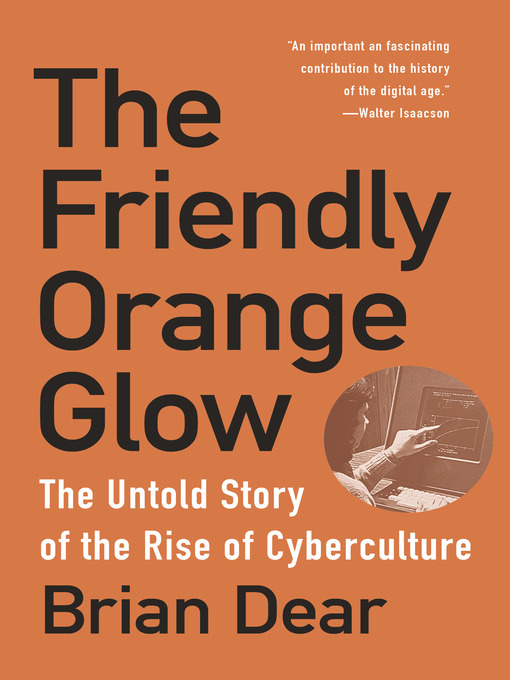
The Friendly Orange Glow is the first history to recount in fascinating detail the remarkable accomplishments and inspiring personal stories of the PLATO community. The addictive nature of PLATO both ruined many a college career and launched pathbreaking multimillion-dollar software products. Its development, impact, and eventual disappearance provides an instructive case study of technological innovation and disruption, project management, and missed opportunities. Above all, The Friendly Orange Glow at last reveals new perspectives on the origins of social computing and our internet-infatuated world.
-
Creators
-
Publisher
-
Release date
November 14, 2017 -
Formats
-
Kindle Book
-
OverDrive Read
- ISBN: 9781101871560
- File size: 43619 KB
-
EPUB ebook
- ISBN: 9781101871560
- File size: 76541 KB
-
-
Accessibility
-
Languages
- English
-
Reviews

Loading
Formats
- Kindle Book
- OverDrive Read
- EPUB ebook
subjects
Languages
- English
Why is availability limited?
×Availability can change throughout the month based on the library's budget. You can still place a hold on the title, and your hold will be automatically filled as soon as the title is available again.
The Kindle Book format for this title is not supported on:
×Read-along ebook
×The OverDrive Read format of this ebook has professional narration that plays while you read in your browser. Learn more here.